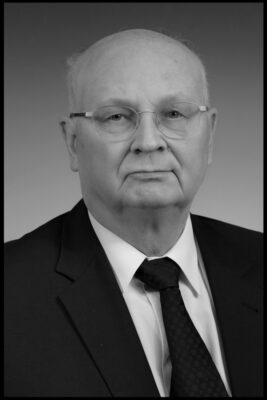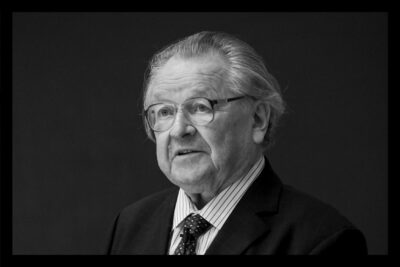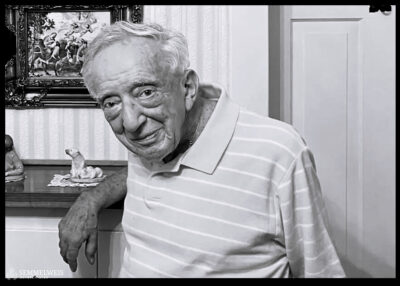While still in high school, he wrote a letter entitled ‘I’m going to be a doctor’, but his interest in history was so great at the time that he even entertained the idea of becoming a historian. His love of history, particularly his interest in the 20th century and Central Europe, accompanied him throughout his career. He always advocated and encouraged the cooperation and collaboration of Central European urology. As a true European, a genuine Hungarian from the Carpathian Basin, he promoted the development of Hungarian urology and built its future, but he greeted all his international colleagues in their language.
- Slavonic Medical Society, Osijek, 1999
- Vereinigung der Middeldeutschen Urologen, corresponding member, Kassel, 2000
- Romanian Society of Urology, 2000
- Slovak Society of Urology, 2002
- German Society of Urology (DGU), corresponding member, 2002
- Polish Urological Association, 2005
- Czech Urological Association, 2005
- German Society for Urology (DGU), honorary member, 2009
- European Association of Urology (EAU), 2009
- Austrian Society for Urology (ÖGU), 2018
In his career choice, he was supported by his brother, who was already working as an internist, but later he followed the example of our university’s future professor and rector in his attitude to medicine, his love for patients, and his humility to the profession. He graduated from Semmelweis University of Medicine in 1971. His life and work are inseparable from Semmelweis University, where he studied and later taught, practiced medicine, conducted research, and where he was the chairman of the Editorial Board of the journal Semmelweis University from 2020 until his death.
 After graduation, he first worked as a resident at the Institute of Pathophysiology, where he also obtained a ‘laboratory’ qualification, and then he started working devotedly at the Department of Urology in 1974, where he obtained his qualification in 1978. It was a big milestone for him to spend three months at the Bonn clinic in 1984, from where he was invited to work in Bocholt a few years later by the deputy director. In 1988, after working in Germany for two years, he returned to Budapest. His time in Germany was instrumental in his later career, he was very impressed by and fond of law-abiding attitude, high professionalism, and precision. Throughout his life, he tried to implement this approach domestically and later managed to achieve it as a leader. As a result, in 2005, the European Board of Urology (EBU) designated the University’s Department of Urology as the first EBU-accredited training center in Central and Eastern Europe. Thanks to his innovative work, he was the first to introduce many new diagnostic and therapeutic procedures in the country and his own workplace.
After graduation, he first worked as a resident at the Institute of Pathophysiology, where he also obtained a ‘laboratory’ qualification, and then he started working devotedly at the Department of Urology in 1974, where he obtained his qualification in 1978. It was a big milestone for him to spend three months at the Bonn clinic in 1984, from where he was invited to work in Bocholt a few years later by the deputy director. In 1988, after working in Germany for two years, he returned to Budapest. His time in Germany was instrumental in his later career, he was very impressed by and fond of law-abiding attitude, high professionalism, and precision. Throughout his life, he tried to implement this approach domestically and later managed to achieve it as a leader. As a result, in 2005, the European Board of Urology (EBU) designated the University’s Department of Urology as the first EBU-accredited training center in Central and Eastern Europe. Thanks to his innovative work, he was the first to introduce many new diagnostic and therapeutic procedures in the country and his own workplace.
Thanks to his persistent diligence and tireless efforts, besides being on call, he continuously studied the scientific literature, initiated prospective studies mainly in oncology, and based on these studies he regularly gave lectures at national and international conferences and published in Hungarian, German, and English. As a result of his work, he received his Candidate of Medical Sciences in 1985, then a doctorate from the Hungarian Academy of Sciences in 1995, and his habilitation at Semmelweis University of Medicine in 1994. For two years from 1995, he was Head of the Department of Urology at the National Institute of Rheumatology and Physiotherapy (ORFI). In 1997, he was appointed professor and head of the Department of Urology at Semmelweis University, which he directed at a high standard for 15 years until his retirement in 2012. He then worked as deputy director of the department for a few years, and later as professor emeritus. He came to the clinic every day, even when his illness was taking its toll on his health. He worked tirelessly every day, reading, writing, and in all his work he aimed at the advancement and development of Hungarian urology, the department, and science.
Professor Imre Romics was a leading figure not only at the Department of Urology in Budapest and at Semmelweis University, but also in Hungarian and international urology. He respected work, believed that order and discipline were the basis of medical activity, and always demanded this of himself and his subordinates. He set a personal example to his students through his diligence, perseverance, humility, and care for his patients. He worked with exemplary diligence and perseverance. He was always the first to arrive at the department and the last to leave, even the weekend on-call doctor regularly greeted him at the department. If there was an emergency, an operation, he would not go home until the case was resolved. We could always count on him, even at Christmas. Whenever he returned home from a conference abroad, he would make a detour to the department to check his patients. He loved teaching and his medical students loved him dearly. He considered university education to be a matter close to his heart and instilled in his students a deep love and appreciation of its importance. Even during his illness, when he felt a little better between treatments, he was always happy to give practical training sessions and lectures or conduct exams. He set up a classroom to facilitate the education of medical students. He authored several textbooks in Hungarian and English, several reference books, book chapters, and publications, and delivered numerous advanced training lectures.
One of his most important scientific training initiatives was the launch of the Füvészkert Urology Days (FUN), which, in its more than 25-year history, has grown into the second-largest urology congress in Hungary. The idea came overnight, in 1998, perhaps inspired by his time in Bonn. The naming was a particular puzzle for him, since the ‘predecessor’ of FUN was the 1997 conference Contradictions in Urology. He wanted a name that would translate well for an international audience. From the director’s office at the department, one could enjoy a view of the botanical garden Füvészkert. That’s where the idea of the Füvészkert Urology Days, abbreviated FUN, a meaningful and apt word in English, came from.
In 2009 he founded the Hungarian Uro-oncology Society and the journal Uro-oncology, and as its president, he was involved in the organization of uro-oncology congresses. In the field of urological cancer care, he advocated decades ago the significance of interprofessional collaboration, the need for experience and knowledge sharing, and the paramount importance of urologists in patient care and follow-up.
He attached great importance to scientific work, inspired his colleagues, and supported their activities by recommending and supporting international scholarships and applications. Thanks to his exceptional vision, all of the colleagues he hired and who are currently working at the Department of Urology in Budapest have since obtained their PhDs. Eight of his students have obtained PhDs, three habilitations, and one doctorate in medicine.
His scientific achievements include more than 800 presentations, over 500 publications, more than 100 book chapters, and 25 book editions.
Professor Romics received numerous national and international awards and was a board or honorary member of several prestigious professional bodies and societies.
Perhaps most notably, in 2009 he was elected an honorary member of the German Society of Urology, an honor not even bestowed on many prominent German professors. His achievements in European urology made him the first Hungarian to become a member of the Association of Academic European Urologists, and he was elected an honorary member of the European Association of Urology. He chaired the Professional Association for many years, but unfortunately, he did not become president of the Hungarian Society of Urology.
He respected the past and cherished its memories, but he was also in search of the future, of something better and more efficient. He felt Professor Vilmos Mikó’s creed to be his own, “Respect for the great and noble traditions of the past is the main guarantee of our advancement.” He is also credited with naming the department’s operating rooms after predecessors, as well as painting portraits of the former heads of the department. In 1998, he established a urology museum, which is still unique in Hungary, and which displays not only the history of the department but also urological relics. After his retirement as a director, he devoted more and more attention to compiling the history of urology in Hungary and abroad, and published his findings in several books and publications. He delivered his last lecture on this very topic, already very ill, but still highly motivated and enthusiastic, at the conference of the Hungarian Continence and Urogynecology Society a month and a half ago, where the portrait of this obituary was taken.
In keeping with tradition, a portrait of him was painted for his 70th birthday, which, similarly to the paintings of our predecessors, is displayed in the director’s office. After his death, his portrait, decorated with a black ribbon, was temporarily moved to the library. On the wall of the director’s office, there is a blank space now, symbolizing the emptiness, the void that his passing has left in the hearts of all his students.
Esteemed Professor, Dear Uncle Imre, you devoted nearly half a century to urology, both domestically and abroad, in order to pass on to us, your successors, all the knowledge and experience you had acquired in the field of teaching, research, and medicine. You gave us everything when you left us a morally sound, professionally high-quality department, complemented by the human values that help us to cherish the traditions and memories of the past and to choose the right path for the future. Throughout your life, you led us by example every day.
We will always treasure your memory, in the bottom of our hearts, you will always live on and serve as a role model for generations of urologists to come.
Returning to your Creator, we wish you eternal peace and tranquility.
On behalf of your loving students,
Dr. Péter Nyirády


